👋 As is our tradition, this final Starting Early issue of 2023 honors Burke Foundation Community Champions whose work transforms the lives of families during the all-important First 1,000 Days from pregnancy to age 2.
Join us in celebrating these 5 passionate, influential advocates. They are exemplary leaders — from being on the front lines of delivering services in real time to reimagining entire systems in support of families with young children.
Each Community Champion embodies the spirit and practice of Early Relational Health and the science behind it. They understand the devastating financial, emotional, and logistical challenges that prevent many families from thriving. Recognizing that seemingly ordinary moments caregivers spend with young children build the foundation for lifelong health and well-being, they strive to tear down the barriers to success. In the process, these Champions transform families — and have an extraordinary effect on communities.
The 2023 Burke Foundation Community Champions are:
⭐Commissioner Christine Norbut Beyer, New Jersey Department of Children and Families
⭐Grysmeldy González, Family Connects nurse manager, Central Jersey Family Health Consortium
⭐Juwana Montgomery, assistant director, South Ward Healthy Beginnings
⭐Maritza Raimundi-Petroski, vice president, The Children’s Home Society of New Jersey
⭐Reshma Saujani, founder and CEO, Moms First
Read more about our Champions’ accomplishments below then click the link to each of their interviews to see why they inspire us. 🤩💫
As we end the year, the Burke Foundation staff, trustees, and I wish you the happiest and healthiest holiday season and all the best for 2024. Starting Early will return in January.
Atiya Weiss
Executive Director, the Burke Foundation
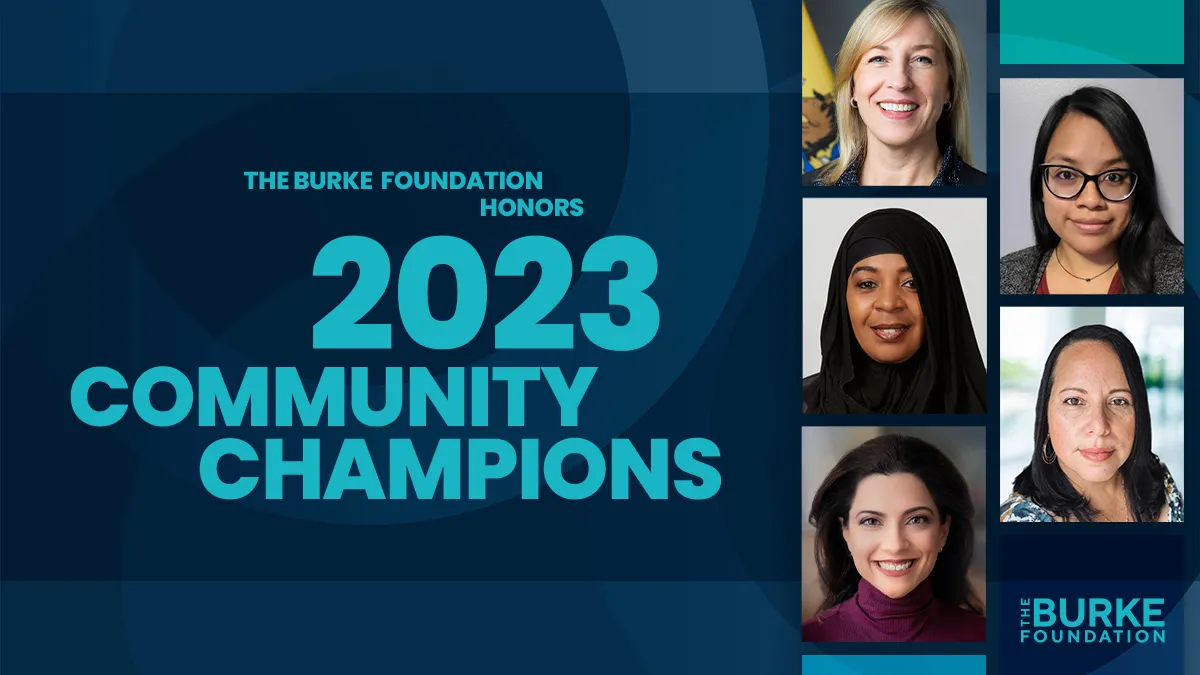
1. Transforming family well-being in New Jersey
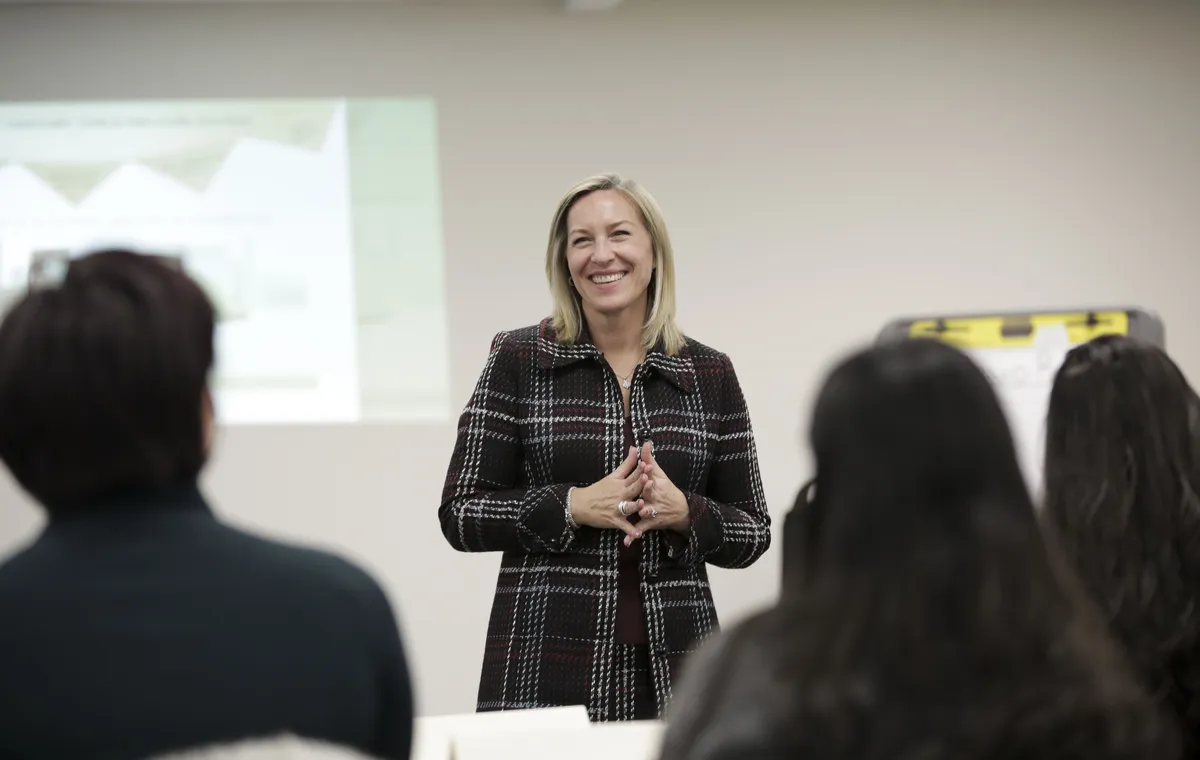
Commissioner Christine Norbut Beyer, New Jersey Department of Children and Families
The New Jersey Department of Children and Families is the state’s first cabinet-level agency devoted exclusively to serving and supporting at-risk children and families. Its mission and vision are for every New Jersey resident to become or remain safe, healthy, and connected.
Community Champion: Commissioner Beyer’s leadership is transforming New Jersey’s approach to protecting children and families. Hers is a persistent voice for children and families, pushing to change New Jersey’s top-down system into a reimagined, community-driven model.
One of her major priorities is increasing kinship placements for children so they can have a home with close family. During her time as commissioner, the number of children being placed with relatives has dramatically increased — now up to 70% of children are placed with relatives within the first 30 days of coming into foster care.
“We’ve infused the ideal of safe, healthy, and effective into every aspect and service delivered through the Department, every resource we provide,” Commissioner Beyer explains. Her department defines “safe” as the absence of harm or maltreatment. “Healthy” means physical, mental, developmental, and emotional well-being. And “connected” refers to the bonds that tie people together, whether through biology, family, familiarity, or community.
This powerful approach is a key to reimagining the child welfare system. “These 3 elements are like the legs of a stool,” the Commissioner says. “Each is essential to the well-being of children and their families. None can work independently of each other.”
Rebuilding a broken system: A series of tragic examples of abuse and even death that led to a federal lawsuit in 1999 exposed New Jersey’s system as dysfunctional, under-resourced, and unable to perform the work that children, youth, and families needed. The state had been addressing the resulting federal mandates since 2003 and, in October 2023, completed its obligations.
“I joined the Department in 2003 specifically to assist with the federal consent decree, wanting to be in a place of so much potential, to take steps to build the foundations for a truly transformed and transformational child- and family-serving system,” the Commissioner says. “To be able to preside over the Department for the exit from federal oversight, knowing we can now chart our own course — it feels like one of those full-circle moments.”
Honoring lived experience: One of Commissioner Beyer’s points of pride has been to elevate clients’ voices, particularly for youth who’ve been involved with an aspect of the child welfare system, and for fathers who long felt they were disenfranchised and dismissed by the system. “Through the Office of Family Voice and other programs, we’ve created space for people with lived experience to have a meaningful role in our department’s future,” she says. “They’re helping to guide and reshape policy, to reframe the narrative we share, or to train the next generation of frontline staff.”
“It’s been exhilarating to see how these lived-experience leaders have helped propel our transformation forward.”
Read this interview with Commissioner Beyer to learn more about her focus on connecting families and communities.
2. Connecting with families in the critical first weeks
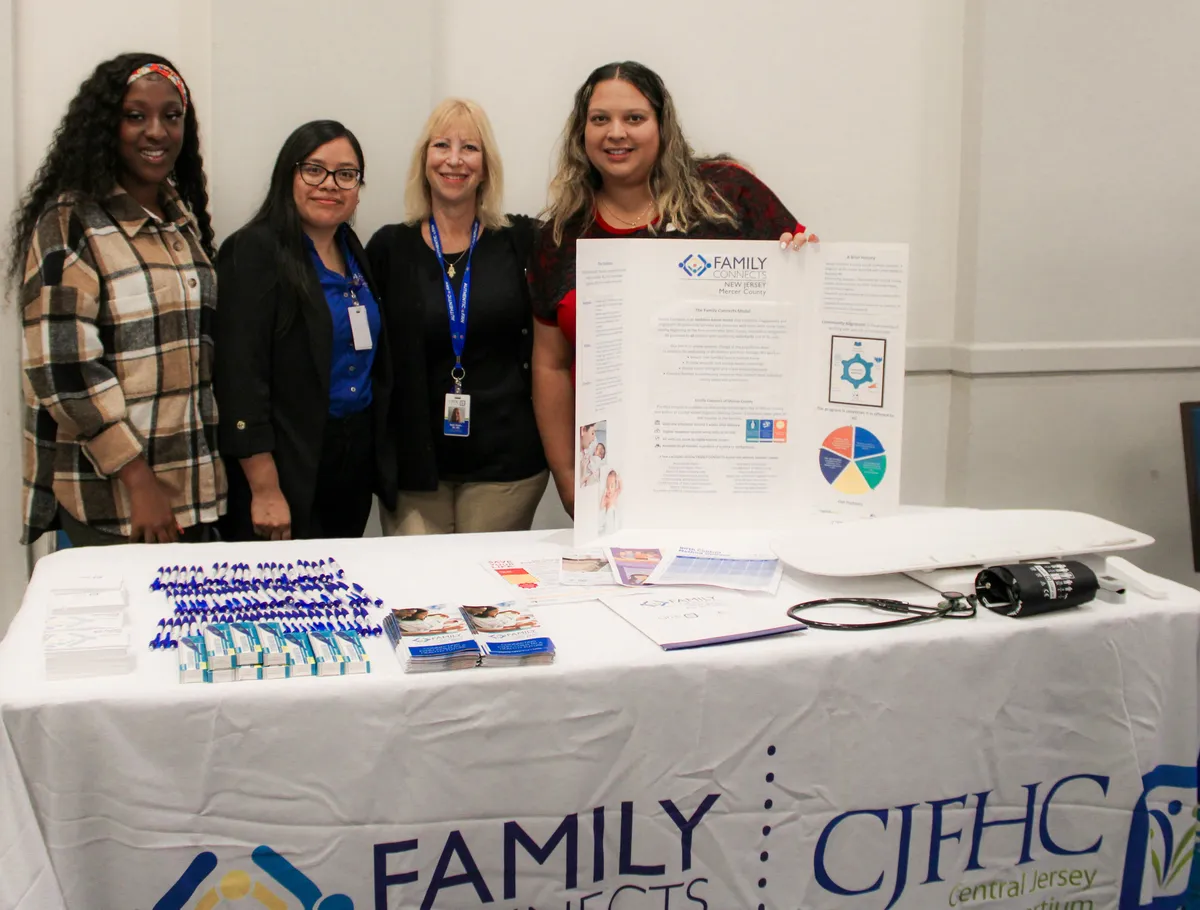
Grysmeldy González, nurse manager, Family Connects
Family Connects Mercer County provides a free in-home nurse visit to all families that give birth at Capital Health Center-Hopewell and live in Mercer County, regardless of income or background. Family Connects strengthens bonds within families of newborns and links them to supportive community resources. The program is also available to adoptive and foster parents, as well as those experiencing a fetal/birth loss.
Community Champion: The first weeks after a birth are often the most challenging for mothers and babies, leaving both feeling isolated and vulnerable. Grysmeldy González was a home-visit nurse and now leads a team of dedicated professionals for Family Connects Mercer County, New Jersey’s first universal home-visiting site. Based on her own experience, she preaches the power of connecting with clients and building relationships with families.
“I was one of the first nurses hired on this pilot at the end of 2021 and it was truly a riveting experience to help launch the program from the ground up,” says Grysmeldy. “I’m very proud of all the work the nurses and the other individuals and partners involved have done to make this possible. Our team’s biggest accomplishment was completing 1,000 visits, which we hit last month!” 🤱🌟
Free, nurse-led, and comprehensive: Grysmeldy credits Family Connects’ success to its breadth. “Nurses are ideal for providing holistic care as we try to set up families for success by assessing not only their health, but their emotional well-being, environmental safety, parent-child relationships, and parental/social support,” she explains. “Our nurses help clients sign up for Medicaid, WIC, and SNAP. They help them find baby items, food, and childcare. They make referrals to mental health services, legal/immigration aid, and case management, just to name a few.”
Relieving stressors: “One of the biggest challenges for families during the First 1,000 Days is lack of support, from people close to them as well as from society as a whole,” explains Grysmeldy. “The stressors from life, work, and family, and financial pressure can greatly affect the bonds created among family members.” The Family Connects team encourages all potential caregivers to participate in the visit, assessing how family members interact with the newborn, and helping them learn how to bond with a baby in ways that aid in development.
Read this interview for more insight from Grysmeldy on progress being made toward more equitable care for Black and brown women.
3. Helping the youngest mothers
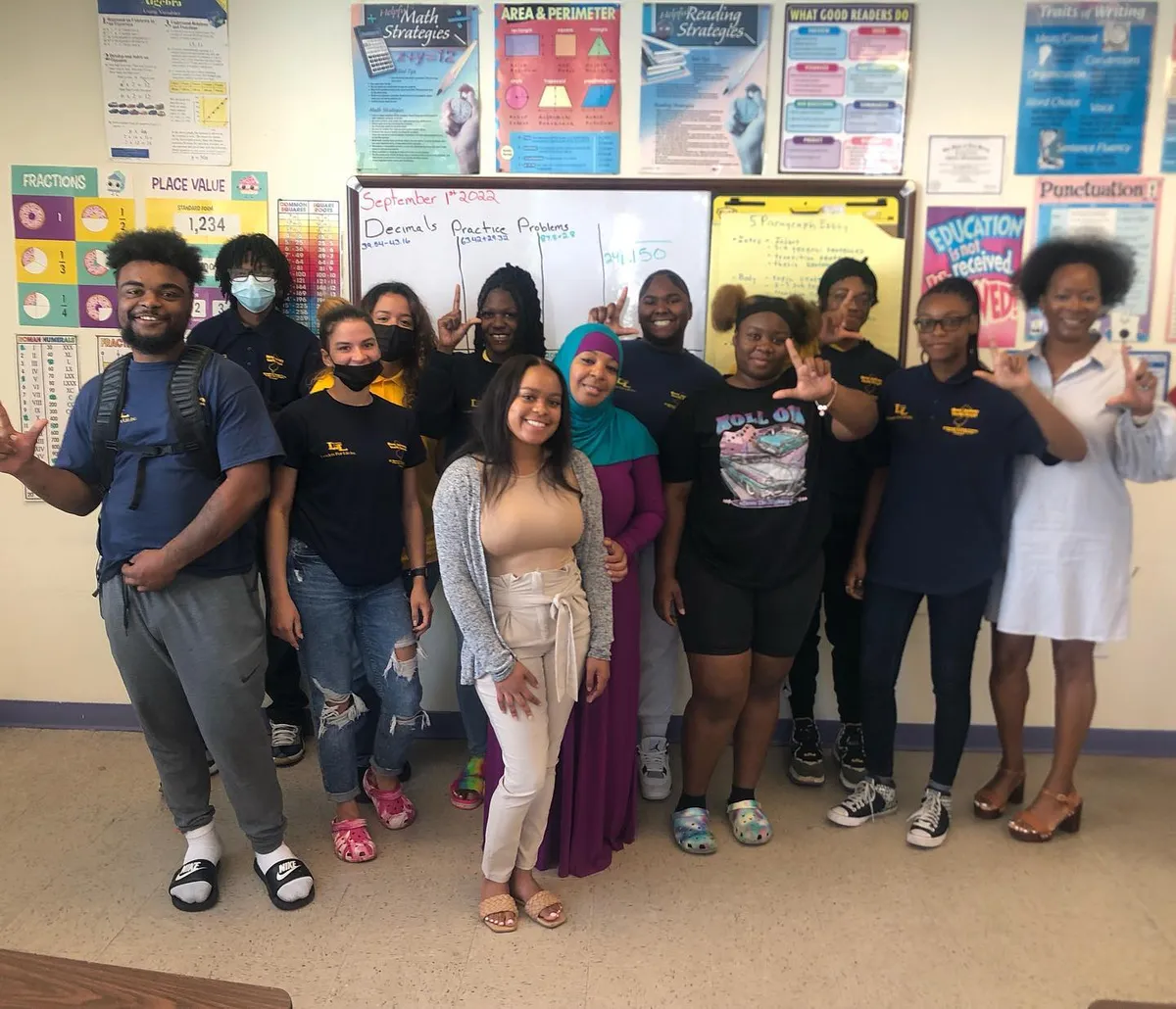
Juwana Montgomery, assistant director, South Ward Healthy Beginnings
South Ward Healthy Beginnings is committed to improving the health of pregnant people in underserved areas in Newark — especially teen mothers. The organization’s doulas and other staff provide support throughout pregnancy and for the first 3 years of a child’s life. They offer such comprehensive, culturally-responsive services as health education, prenatal care, breastfeeding and postpartum support, mental health, social support, and counseling.
Community Champion: Juwana Montgomery works tenaciously for families in Newark and Essex County. In addition to her managerial responsibilities, she’s a doula, childbirth educator, WIC ambassador, perinatal community health worker, and more. Her sensitivity to the challenges of teen moms enables Juwana to encourage them to complete high school and empower them to find their own voice. She’s instrumental in creating such supports for families as infant massage, breastfeeding, yoga, and much more.
Meeting teen moms’ unique needs: Teen moms in disadvantaged communities face extra challenges that Juwana and her team address. “Our model is ‘a baby is not a mistake,’” says Juwana. “A baby can be a hiccup. But you can have a hiccup in your life at any age and have a baby. We want to make sure they’re able to continue to carry on, so they can change their trajectory for themselves as well as their child.”
Juwana’s support covers wellness visits, transportation, housing and food availability, and education on how to deal with life in school, home instruction, and returning to school. During postpartum follow ups, team members engage with South Ward’s workforce and college career path teams.
The secret to success: Juwana’s immediate response is one simple word: dedication. “It’s not just my dedication,” she says. “It takes the entire organization, especially Dominique Lee, our CEO. If I bring something to him, he backs me. But there’s more. We’re unapologetic about serving the community. What matters to us is the people we serve — the families, the babies.”
That’s the stuff of champions.
Read more about Juwana’s support for families and teen parents in this recent interview.
4. Building a system of support for mothers and babies
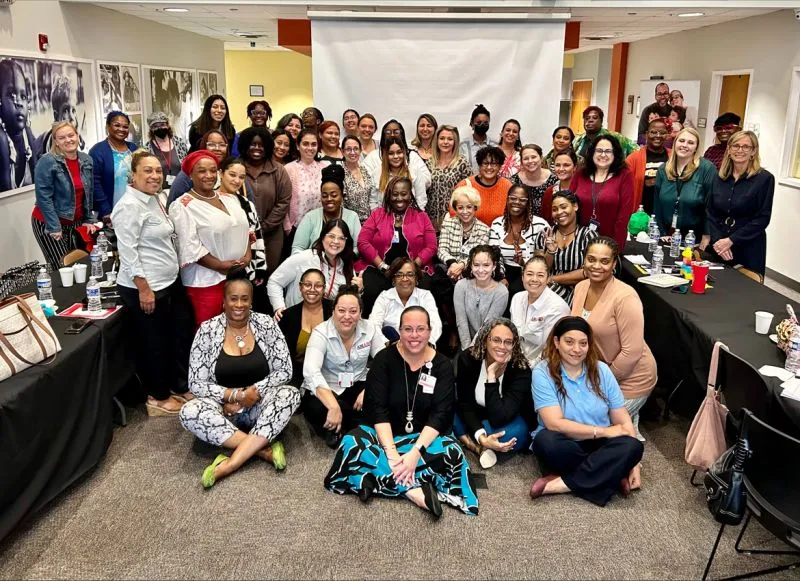
Maritza Raimundi-Petroski, vice president, strategic initiatives, prevention programs, and community engagement, The Children’s Home Society of New Jersey
Founded in 1894, CHSofNJ protects abused or neglected infants and children, striving for stable, permanent, loving homes for every child. The organization is a lead partner in the Trenton-area AMAR community doula program supported, in part, by the Burke Foundation.
Community Champion: Throughout her career, Maritza Raimundi-Petroski has made a measurable difference in the lives of families in her care. She was a driving force in expanding the AMAR community doula program, significantly improving the health of mothers and babies. The doulas have contributed to an increase in the number of full-term babies and the length of time mothers are exclusively breastfeeding. Maritza’s humility and inclusiveness inspire her team of doulas, showing what a nurturing leader can accomplish.
Understanding the challenges: Maritza’s compassion for families propels her.
“Life is very, very complicated and it’s not a textbook play-by-play design,” says Maritza. “Social determinants of health play a huge role in a family’s ability to make decisions or to follow through or to follow up. And when they have to make those decisions about food insecurity, about housing insecurity, about family issues they need to attend to, in many cases, all of that trumps their own personal relationship with health.”
When someone isn’t meeting expectations or showing up to appointments, Maritza doesn’t judge. “There are so many things behind the scenes that people really don’t understand,” she explains. “If I have $10 to pay for a taxi to take me to a prenatal visit, or $10 to make sure my child has food for the next 2 days for snacks for school, I’m going to make the judgment of food for my kid. And those are decisions that families make every single day.”
That understanding is a key to the doula program’ success. Rather than simply providing birthing assistance, doulas look to connect the families they serve to all kinds of support and non-judgmental advocacy.
Read more about Maritza’s passion for families and mothers, including why she’s hopeful for the families in her care, in this recent interview.
5. Building a more equitable workplace for mothers
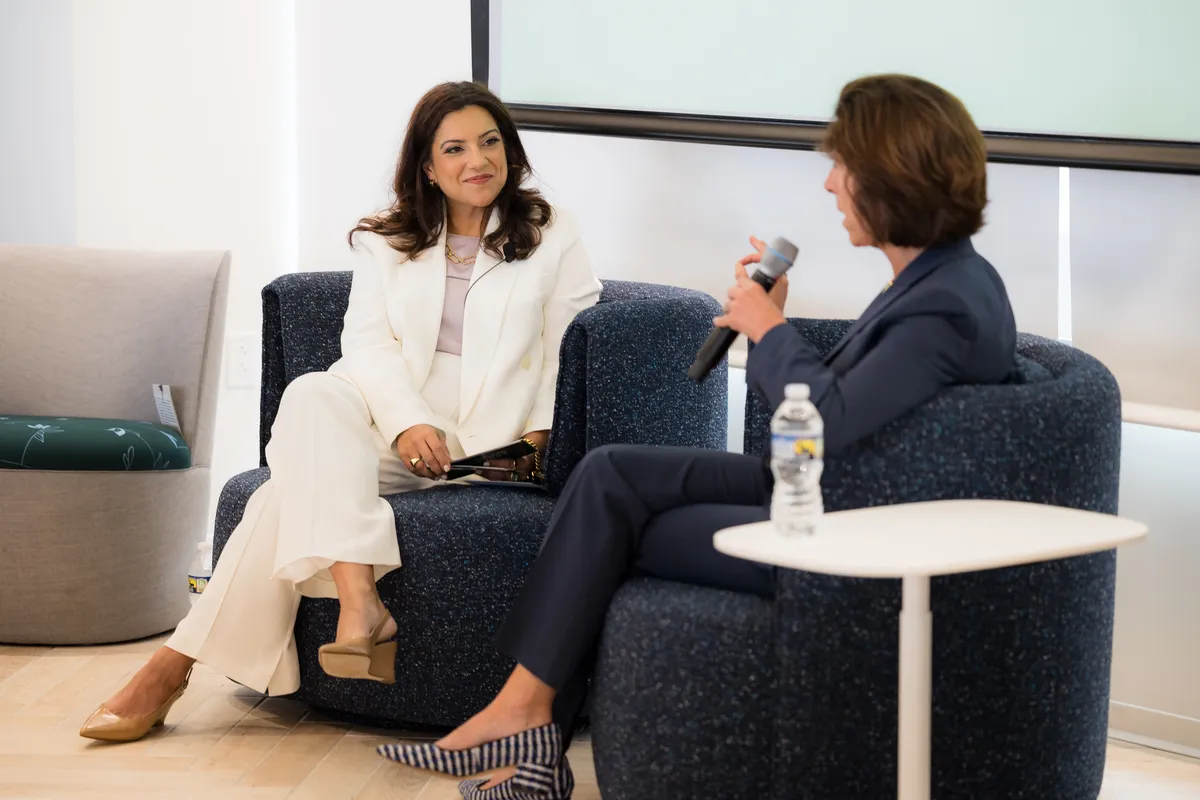
Reshma Saujani, founder and CEO, Moms First
Moms First’s mission is to win paid leave policies and affordable, quality childcare in as many places and spaces as possible.
Community Champion: Reshma Saujani’s career-long commitment to improving women’s lives started with her leadership of Girls Who Code. The organization creates technology career opportunities, changing the trajectory for 600,000 girls – 50% of them below the poverty line.
As founder and CEO of Moms First, Reshma launched a movement to remove the stresses on families that go hand in hand with income inequality. She’s a fierce advocate for increased access to quality child care and paid family leave for all. Reshma was a driving force behind this summer’s New Jersey Care Policy Symposium and will be a part of Burke’s new effort to work with the private sector to improve care policies. In a recent breakthrough, Moms First launched a first-of-its-kind AI tool to help New York parents access paid leave.
Seeking structural change: As if women don’t face enough challenges in the workplace, once they become mothers, the financial inequities multiply. The US is the only industrialized nation without government-provided paid leave. A quarter of moms go back to work a few weeks after having a baby. And those who take unpaid leave to care for their baby lose $10,000 in wages on average. “That’s unconscionable,” says Reshma. “So, we’re working to change that at the federal and state levels — then increase the number of companies providing paid leave and with a real focus on hourly workers.”
But that’s only half the battle. Affordable, quality, childcare is also essential to women’s ability to achieve equity. “Far too many women work to work,” says Reshma. “40% of parents go into debt because of the cost of child care. We are the wealthiest nation that puts the least amount of money into our child care.”
Moms First works to change the narrative from “this is a woman’s personal problem” to “this is a business imperative” by encouraging companies to subsidize child care.
“When I decided to step away from being CEO of Girls Who Code and to dedicate my life to passing paid leave and child care, people said, ‘What? What? Why are you doing that?’ And I realized that we will never be free as women unless we solve these 2 major structural issues.”
Read more in our recent interview about Reshma’s conviction that improving workplace policies will drive generational change for families.
